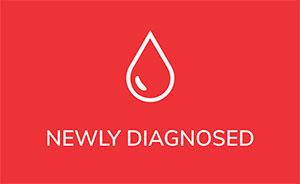As one ages, the risk of reactivating the zoster virus and developing a painful outbreak of shingles increases. While chickenpox was bad enough when you were a child, the adult form of herpes zoster or shingles can be much worse. The pain and disability from it can be so significant that it was worth it to the pharmaceutical companies to develop a vaccine and for the CDC to recommend that all adults over 50 get the vaccine. That may seem quite straightforward, but nothing is that simple when you have CLL / SLL.
In the healthy individual, exposure to an antigen (a protein that stimulates the immune system) begins a complex series of steps with specialized cells taking in the antigen, then processing the antigen to “present” it to the T cells, who determine what specific mode of defense is needed. This decision can then be communicated to the B cells if antibodies are to be formed. T cells are also activated in both direct defensive action and in controlling the overall immune response.
Most of the time, the entire virus is not used as a stimulus. In the case of varicella herpes zoster, glycoprotein G is the piece of the virus coating used to stimulate the immune defense.
The question then is, can CLL patients respond adequately to the vaccine so that it is worth getting it? There are two aspects to that. The first is that exposure to the antigen should not put the patient in danger of contracting the disease, and the second is that the immune system should be capable of initiating either a T cell or B cell. The original vaccine (no longer sold in the US) was made from live viral particles and, as such, was dangerous to use in a patient with a lessened ability for defense. The newer vaccine is not a live virus form and is safer for CLL patients to take.
In CLL, a common immune dysfunction is impairment of the B cells, the cells which make antibodies. Eventually, the T cells which interact (with increasing frustration) with the abnormal B cells begin also to lose their function. All of this creates a situation known as immunosuppression. A common way to increase the immune system’s response to a vaccine is to add in something called an adjuvant. There are many different adjuvants, and the concept of using them is very well known. The current recommended vaccine contains such a compound.
A cohort of patients who were either watch and wait or currently using a BTKi medication was vaccinated in the standard fashion. Their antibody levels and T-cell responses were then tested. The successful endpoint for antibody production was a 4-fold increase of anti-glycoprotein G antibodies after six months. T cell success was defined as a 2-fold response in such cytokines as interferon-g, tumor necrosis factor, and an absolute increase in CD4 cells specific to the presence of glycoprotein G.
76.8% of the treatment-naive patients formed antibodies, but only 40% did if they took a BTK inhibitor. Interestingly and perhaps somewhat encouraging are the results that 68.5% of those who made antibodies also had a positive cellular immune response, whereas 35.9% (of subjects attained a cellular immune response in the absence of antibody formation.
The bottom line is that the vaccine does work for a moderate number of CLL patients and can induce both B-cell and T-cell responses. But, not surprisingly, the response is less strong in the patients who are using treatment compared to those who are treatment naïve.
You can find the ASH abstract at Effect of Bruton Tyrosine Kinase Inhibitor on Serologic and Cellular Immune Responses to Recombinant Zoster Vaccine
Please enjoy this interview between Dr. Sameer Parikh and Dr. Christopher Pleyer:
By Susan Leclair, Ph.D., CLS (NCA) is Chancellor Professor Emerita at the University of Massachusetts Dartmouth; Senior Scientist at Forensic DNA Associates; and Moderator and Speaker, PatientPower.info – an electronic resource for patients and health care providers.

















